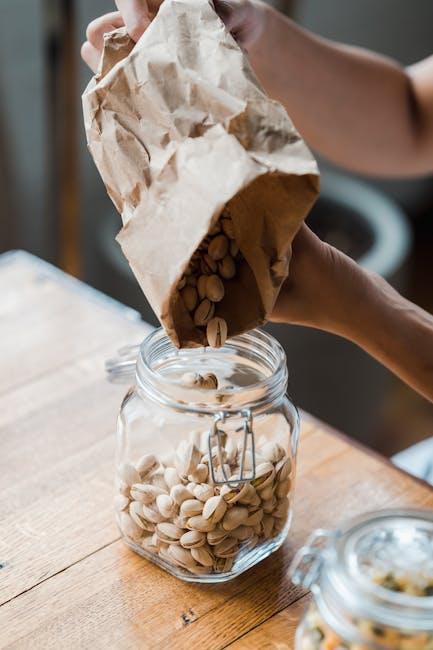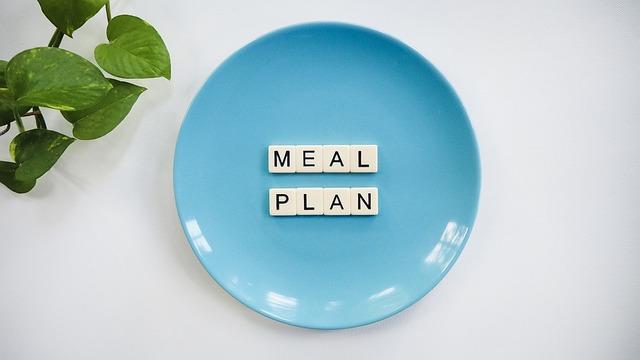Embarking on a journey towards sustainable fat loss requires more than just a fleeting commitment to the latest diet trend; it demands a strategic and personalized approach that nurtures both body and mind. In a world overflowing with quick-fix solutions and contradictory advice, creating a sustainable fat loss diet plan can seem daunting. However, with the right guidance and understanding, it is entirely achievable. This article will equip you with the essential tools and knowledge to design a diet plan that not only supports your fat loss goals but also promotes long-term health and well-being. By focusing on balanced nutrition, mindful eating, and realistic goal-setting, you will learn how to craft a plan that fits seamlessly into your lifestyle, paving the way for lasting success. Let’s dive into the fundamentals of creating a sustainable fat loss diet plan that empowers you to transform your body and maintain your achievements for the long haul.
Understanding Nutritional Basics for Sustainable Fat Loss
To embark on a journey toward sustainable fat loss, it’s crucial to grasp the fundamental principles of nutrition. Understanding these basics can transform your approach, ensuring that your efforts are both effective and long-lasting. Nutritional balance is key, involving the right mix of macronutrients: carbohydrates, proteins, and fats. Carbohydrates are essential for energy, but focus on complex sources like whole grains and vegetables. Proteins, from lean meats, legumes, or plant-based sources, aid in muscle repair and growth. Healthy fats, such as those from avocados, nuts, and olive oil, support brain function and hormone regulation.
- Caloric Deficit: To lose fat, consume fewer calories than you burn, but do so mindfully to avoid extreme restrictions.
- Portion Control: Understand serving sizes and listen to your body’s hunger cues to avoid overeating.
- Hydration: Water aids in digestion and helps control hunger, making it an essential part of any diet plan.
- Consistency: Adhere to a routine that includes balanced meals and regular physical activity for sustained results.
Incorporate fiber-rich foods such as fruits, vegetables, and legumes to improve satiety and digestive health. Remember, it’s not just about cutting calories; it’s about making informed choices that nourish your body while gradually reducing excess fat. With these nutritional basics, you’re well-equipped to craft a diet plan that aligns with your lifestyle and goals.

Crafting a Balanced Meal Plan Tailored to Your Needs
Embarking on a journey to create a sustainable fat loss diet plan starts with understanding your body’s unique requirements and goals. A well-rounded meal plan should emphasize balance, incorporating a variety of nutrient-dense foods that not only support weight loss but also enhance overall health. Begin by calculating your daily caloric needs based on your activity level and desired rate of fat loss. Then, allocate these calories to ensure a harmonious blend of macronutrients: proteins, carbohydrates, and fats. Proteins are essential for muscle repair and growth, while carbohydrates provide energy, and healthy fats support cell function and hormone production.
- Lean Proteins: chicken breast, tofu, fish, legumes.
- Complex Carbohydrates: whole grains, quinoa, sweet potatoes, oats.
- Healthy Fats: avocados, nuts, seeds, olive oil.
Incorporate a variety of colorful fruits and vegetables to ensure you’re getting a full spectrum of vitamins and minerals. Portion control is key, so be mindful of serving sizes, and listen to your body’s hunger cues. Hydration also plays a crucial role, so aim to drink plenty of water throughout the day. By maintaining a flexible approach and adjusting your plan as needed, you’ll be well-equipped to achieve your fat loss goals in a sustainable and health-conscious manner.

Incorporating Healthy Habits for Long-Term Success
Developing and maintaining healthy habits is crucial for achieving long-term success in your fat loss journey. Start by focusing on small, manageable changes that can be easily integrated into your daily routine. Prioritize consistency over perfection to ensure these habits become second nature. Consider the following strategies:
- Mindful Eating: Pay attention to your hunger cues and practice portion control. This helps in preventing overeating and promotes a healthier relationship with food.
- Regular Exercise: Incorporate a mix of cardio, strength training, and flexibility exercises to enhance overall fitness and boost metabolism.
- Hydration: Aim to drink at least 8-10 glasses of water daily to aid digestion and maintain energy levels.
- Sleep Quality: Ensure 7-9 hours of quality sleep per night to support recovery and hormone regulation.
- Stress Management: Engage in activities like meditation, yoga, or journaling to reduce stress and prevent emotional eating.
By weaving these practices into your lifestyle, you’ll not only support your fat loss goals but also pave the way for sustainable health improvements.

Monitoring Progress and Making Necessary Adjustments
Once you’ve established your sustainable fat loss diet plan, it’s crucial to continuously assess your progress and remain adaptable. Start by setting a regular schedule for checking in on your progress—whether that’s weekly or bi-weekly—and ensure you have measurable metrics in place. Consider using tools like a food diary, fitness tracker, or even photos to document changes over time. Keep an eye on trends rather than day-to-day fluctuations to avoid unnecessary stress. It’s important to celebrate the victories, no matter how small, and stay motivated.
If you notice your progress stalling, don’t hesitate to make necessary adjustments. Here are a few strategies you might consider:
- Re-evaluate your caloric intake: As you lose weight, your caloric needs might change. Adjust your intake to ensure you’re still in a deficit.
- Revise your macronutrient ratios: Experiment with different protein, fat, and carbohydrate ratios to see what your body responds to best.
- Incorporate variety: Avoid dietary monotony by introducing new, healthy foods to your meals to keep your plan interesting and nutritionally balanced.
- Stay active: Increase your physical activity level if your progress slows down, integrating both cardio and strength training for optimal results.
Remember, the journey to sustainable fat loss is not a linear path, and adjustments are a natural part of the process. Stay flexible and responsive to your body’s needs, and you’ll be better positioned for long-term success.




